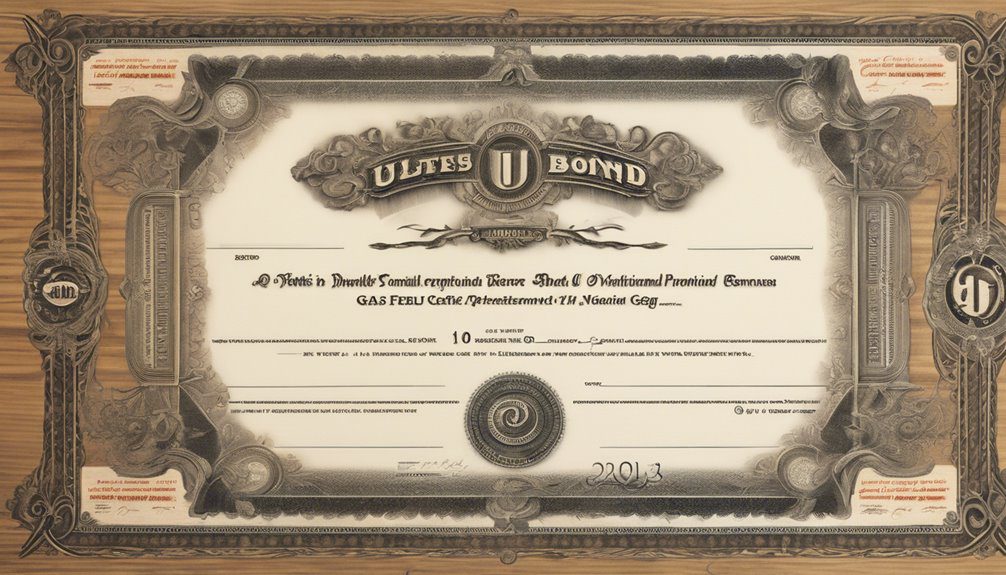If you're considering using the National Fuel Gas Company's services but have a limited credit history, you might want to explore the utility deposit bond option. This bond provides a financial safety net for the company while allowing you to sidestep hefty upfront deposits. Understanding how this bond works and the steps to obtain it can significantly impact your experience. But what factors should you consider when evaluating the costs and benefits associated with a utility deposit bond?
What Is a Utility Deposit Bond?

A utility deposit bond is a financial agreement that guarantees payment for utility services, often required by utility companies before you can establish service. When you're looking to set up gas, electricity, or water services, utility companies may ask for this bond if you don't have a strong credit history.
Essentially, the bond acts as a safety net for the utility provider, ensuring they'll receive payment in case you fail to pay your bills.
If you choose to provide a utility deposit bond, you typically pay a one-time fee to a surety company, which then issues the bond. This fee is often lower than the cash deposit you'd otherwise need to pay directly to the utility company.
The bond amount is generally a percentage of your estimated utility usage and varies based on local regulations.
It's important to remember that while a utility deposit bond helps you avoid a hefty upfront deposit, you still need to maintain your account in good standing.
Failure to do so could lead to claims against the bond, potentially impacting your financial reputation.
Importance of Utility Deposit Bonds
Utility deposit bonds play a significant role in making utility services accessible, especially for individuals with limited credit histories. When you apply for utility services, companies often require a deposit to mitigate the risk of non-payment. However, not everyone has the financial means to pay these upfront costs. This is where utility deposit bonds come into play, offering a practical solution.
By securing a utility deposit bond, you can demonstrate your commitment to fulfilling your payment obligations without having to provide a large cash deposit. This can be particularly beneficial for renters or new residents who may not have an established credit history. It allows you to access essential services like gas, electricity, and water without the burden of a hefty upfront payment.
Additionally, utility deposit bonds provide peace of mind for utility companies. They ensure that, in case of defaults, the bond will cover outstanding amounts. This arrangement fosters a trustworthy relationship between you and the utility provider, paving the way for reliable service access.
In a world where utility services are crucial, utility deposit bonds serve as a vital bridge, enabling individuals to enjoy essential resources while managing their financial constraints.
How to Obtain a Utility Deposit Bond

Securing a utility deposit bond is a straightforward process that can greatly ease your access to essential services.
First, you'll want to identify a reliable surety company or a bonding agent. Research online or ask for recommendations to find a provider that specializes in utility deposit bonds.
Once you've selected a bonding company, gather the necessary documentation. Typically, you'll need to provide personal identification, proof of income, and details about your utility service requirements. This information helps the surety assess your eligibility for the bond.
Next, complete the application form provided by the bonding company. Make sure to fill it out accurately and thoroughly to avoid any delays.
After submitting your application, the surety will evaluate your financial standing and may require a credit check. If approved, you'll receive the terms of the bond, which will outline the coverage limits and your obligations under the bond agreement.
Review them carefully to ensure you understand your obligations.
Costs Associated With Utility Deposit Bonds
Understanding the costs associated with utility deposit bonds is crucial for budgeting your expenses. When you apply for a utility deposit bond, you'll typically face a few key costs.
First, there's the premium you pay to the surety company, which usually ranges from 1% to 15% of the total bond amount. This percentage depends on various factors, including your credit score and the bond's value.
Next, don't forget about any application fees the surety might charge. These can vary by provider but are often nominal.
Additionally, some companies may require collateral, especially if you have a less-than-stellar credit history. This collateral can significantly impact your upfront costs.
You should also consider any potential renewal fees if your bond needs to be renewed annually. These fees can fluctuate based on your financial situation and the surety's policies.
Common Questions About Utility Deposit Bonds

When considering a utility deposit bond, you might've several questions about the process and requirements. One common question is, "What exactly is a utility deposit bond?" It's a financial guarantee that helps cover your utility company's potential losses if you fail to pay your bills on time.
You may also wonder, "Who needs one?" Typically, if you have a poor credit history or are a new customer, the utility provider might require you to secure a bond.
Another frequent concern is, "How much do they cost?" The cost usually varies based on your creditworthiness, but it's generally a small percentage of the total bond amount.
You might also ask, "How do I get one?" To obtain a utility deposit bond, you'll need to work with a licensed surety company, which will evaluate your financial situation.
Finally, you might be curious about how long the bond lasts. Most utility deposit bonds remain in effect until you establish a good payment history or the utility provider releases you from the requirement.
Understanding these aspects can help you navigate the process more smoothly.
Conclusion
In summary, a utility deposit bond can be a great solution if you have limited credit history. It not only protects the National Fuel Gas Company but also allows you to access services without a hefty upfront deposit. By working with a licensed surety company, you can secure this bond and ensure reliable service. Don't hesitate to explore this option—it's a smart way to manage your utility needs while keeping your finances in check.

